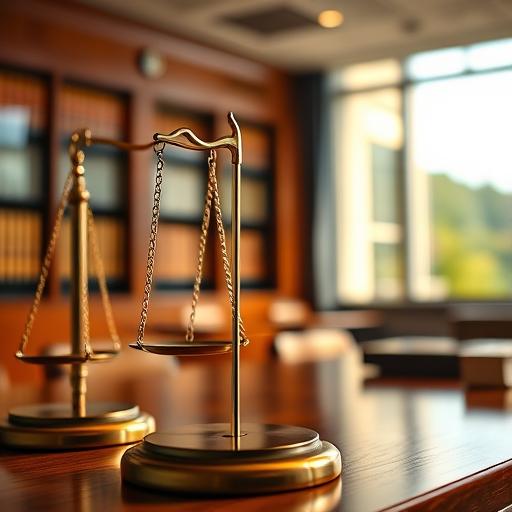Maximizing Real Estate ROI: Why Interior Maintenance is a Crucial Component of Wealth Protection
Maximizing Real Estate ROI: Why Interior Maintenance is a Crucial Component of Wealth Protection
When building a secure retirement portfolio, savvy investors often look toward hard assets like gold, silver, and real estate to shield their wealth from the unpredictable nature of the stock market. While a gold bar remains pristine in a vault for decades, a physical property is a living asset that requires active management to maintain its valuation and protective qualities. For those holding property in the Greater Toronto Area, partnering with professional Toronto painters is more than just a cosmetic choice; it is a strategic move to preserve the “replacement value” of your investment and ensure your wealth remains insulated against market downturns. In the world of alternative assets, the physical condition of your property is just as important as the spot price of precious metals.
Real estate has long been considered a pillar of wealth protection because it offers a tangible hedge against inflation. However, unlike a digital stock or a gold coin, a house or commercial building is subject to the laws of entropy. Without regular maintenance, the very asset meant to protect your financial future can become a liability. Interior maintenance, specifically high-quality painting and finishing, acts as a protective seal for your investment. It prevents moisture from damaging drywall, keeps the environment healthy for tenants, and ensures that the property’s market value continues to climb alongside inflation rather than falling behind due to visible wear and tear.
In this article, we will explore why maintaining the interior of your real estate holdings is essential for long-term wealth protection. We will look at the psychology of asset valuation, the hidden costs of neglect, and how strategic upgrades can significantly boost your return on investment (ROI). By treating your property with the same care you would a precious metals portfolio, you can ensure that your real estate remains a high-performing engine for your retirement planning.
Real Estate as a Hard Asset in a Volatile Economy
In times of economic uncertainty, investors flock to hard assets. These are physical items that have intrinsic value, such as gold, silver, and land. The reason is simple: you cannot print more land, and you cannot manufacture more gold. This scarcity makes them excellent tools for wealth protection. Real estate, in particular, offers the unique advantage of utility. You can live in it, rent it out for cash flow, or use it as a business headquarters. This multi-layered value makes it a favorite for those planning for a secure retirement.
However, the “hard asset” status of real estate is only as strong as the physical structure itself. If a building is allowed to deteriorate, its value as a wealth protection tool diminishes. Think of it like a silver coin that has become so corroded it is no longer recognizable. To maximize the ROI of your property, you must view maintenance not as an expense, but as a capital reinvestment. By keeping the interior in top-tier condition, you are essentially “polishing” your asset to ensure it commands the highest possible price in any market condition.
Furthermore, real estate provides a psychological sense of security that digital assets lack. During a market crash, seeing a well-maintained, beautiful property provides peace of mind. This emotional stability is a key component of wealth protection. When you know your asset is in excellent condition, you are less likely to make panicked financial decisions. Maintaining a professional appearance through high-quality interior finishes is a vital part of keeping that asset’s integrity intact for the long haul.
The Silent Threat of Depreciation and Neglect
Depreciation is the silent killer of wealth. In the world of accounting, buildings are expected to lose value over time as they age. However, in the world of real estate investing, the goal is to beat depreciation through appreciation. One of the fastest ways to lose money in real estate is to allow the interior to fall into disrepair. Small issues, such as peeling paint, scuffed baseboards, or outdated color schemes, might seem minor, but they signal a lack of care to potential buyers and tenants. This can lead to a “downward spiral” where the property attracts lower-quality occupants, leading to further damage.
Neglect also has a compounding effect. A wall that needs a simple coat of paint today might require a full drywall replacement in five years if moisture or grime is allowed to settle in. This is why proactive maintenance is a core principle of wealth protection. By addressing the interior finishes regularly, you are preventing small problems from evolving into massive, expensive repairs that eat into your retirement savings. It is much cheaper to maintain an asset than it is to restore one that has been neglected for a decade.
For investors in the GTA, the competition is fierce. Whether you are looking at residential or commercial spaces, the standard for “acceptable” condition is constantly rising. To keep your ROI high, you must meet or exceed these standards. A fresh, professional interior makes the property feel newer than it actually is, effectively “resetting” the clock on depreciation. This allows you to maintain higher rents and a higher resale value, protecting the purchasing power of your initial investment.
Enhancing Resale Value Through Professional Interior Finishes
When it comes to maximizing ROI, few things offer a better return than a professional paint job. It is often cited by real estate experts as the single most cost-effective way to increase a home’s value. This is because the interior finish is the first thing a person notices when they walk through the door. It sets the tone for the entire viewing experience. A clean, modern, and professionally executed interior suggests that the property has been well-cared for in every other aspect as well.
To achieve these results, it is essential to work with experts who understand the local market. Choosing a team like All Painting Toronto ensures that the job is done with precision and high-quality materials. Professional painters don’t just “slap on a coat of paint”; they handle the necessary prep work, such as filling cracks, sanding surfaces, and ensuring an even finish that lasts for years. This level of detail is what separates a DIY project from a professional renovation that actually adds five or ten times its cost to the property’s valuation.
Beyond just the walls, professional finishing includes the trim, doors, and ceilings. These details are often overlooked by casual investors but are immediately noticed by high-end buyers. Using modern, neutral palettes can make a space feel larger, brighter, and more inviting. This “staging” effect is crucial for wealth protection because it makes your asset more liquid. A beautiful property sells faster and for more money, giving you the flexibility to move your capital into other investments, like gold or silver, whenever you choose.
The Psychology of the “Move-In Ready” Property
There is a powerful psychological component to real estate valuation. Most buyers today are looking for “move-in ready” properties. They are often maxing out their budgets on the down payment and do not want to think about the stress or cost of immediate renovations. When a property looks perfect, buyers are more likely to enter a bidding war, which is the ultimate scenario for maximizing ROI.
By investing in interior maintenance now, you are removing the “friction” from a future sale. You are presenting a finished product that appeals to the buyer’s emotions. They aren’t just buying a building; they are buying a lifestyle and a sense of security. This emotional connection allows you to command a premium price that far exceeds the physical cost of the paint and labor involved in the maintenance.
Strategic Upgrades for Long-Term Retirement Planning
For those using real estate as a vehicle for retirement planning, the timeline is usually measured in decades. Over twenty or thirty years, styles change and surfaces wear down. Strategic interior maintenance involves staying ahead of these trends. You don’t want to reach retirement age and realize your entire real estate portfolio looks like a time capsule from the 1990s. This would require a massive capital outlay right when you want to start withdrawing and enjoying your wealth.
Instead, a “rolling maintenance” schedule is much more effective. By updating one room or one unit at a time on a rotating basis, you spread out the costs and keep the entire portfolio modern. This approach mirrors the way a gold investor might “dollar-cost average” into their position. You are consistently adding value to your asset over time, ensuring that when you are ready to liquidate or live off the rental income, the properties are in peak condition.
Working with a dedicated service provider like All Painting Toronto allows you to build a relationship with professionals who understand your long-term goals. They can help you choose durable finishes that stand up to tenant wear and tear while maintaining a high-end look. This durability is key for retirement planning because it reduces the frequency of necessary updates, allowing more of your rental income to stay in your pocket as profit rather than being diverted back into constant repairs.
Real Estate vs. Precious Metals: The Maintenance Paradox
Investors often debate whether real estate or precious metals are the better wealth protection tool. The truth is that a balanced portfolio usually includes both. However, they require different mindsets. Precious metals are “passive” assets; you buy them and hide them away. Real estate is an “active” asset. The paradox is that while real estate requires more work (maintenance), it also offers the ability to force appreciation—something you can never do with a gold bar.
You cannot make a gold bar more valuable by polishing it, but you can make a house significantly more valuable by maintaining its interior. This “forced appreciation” is the secret weapon of the wealthy. By strategically investing in the upkeep of your property, you are essentially creating wealth out of thin air. The increase in property value almost always outpaces the cost of the maintenance, provided the work is done to a high professional standard.
This is why interior maintenance should be viewed as a core part of your investment strategy. If you treat your property like a “set it and forget it” asset, you are leaving money on the table. By being proactive and ensuring the interior is always pristine, you are maximizing the ROI of your real estate and creating a much larger “nest egg” for your retirement than a passive asset alone could provide.
Conclusion: Protecting Your Future with Professional Care
In the grand scheme of wealth protection, every detail matters. Just as you would carefully vet the purity of a gold coin or the reputation of a bullion dealer, you must vet the professionals who maintain your real estate assets. Interior maintenance is not just about aesthetics; it is about preserving the structural and financial integrity of one of your most valuable retirement tools. A well-maintained interior prevents depreciation, attracts high-quality tenants, and ensures a maximum return when it comes time to sell.
If you own property in Toronto and want to ensure your investment is protected, do not settle for sub-par work. High-quality painting and finishing are the final touches that transform a simple building into a high-value asset. We highly recommend reaching out to the experts at All Painting Toronto to discuss how they can help you preserve and enhance your property’s value. Their commitment to quality and professional results makes them an ideal partner for any investor serious about long-term wealth protection.
Take the next step in securing your financial future today. Whether you are preparing a property for the market or simply want to ensure your retirement assets are in top condition, professional maintenance is the key. Visit All Painting Toronto to see how their services can fit into your wealth protection strategy and help you maximize your real estate ROI for years to come.






















